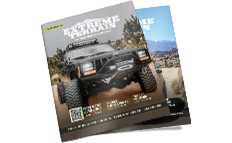2011 4Runner Parts Automotive parts encompass a broad range of parts, each with unique functions, materials, manufacturing processes, quality standards, compatibility, and performance characteristics. The diverse selection caters to the intricate demands of various vehicle makes and models, like the 2011 Toyota 4Runner, renowned for its rugged functionality and reliable performance.
Engine and Transmission
The engine and transmission parts typically are made from hardened steel alloys or aluminum, designed for great durability and high performance under stressful operating conditions. The manufacturing process involves casting and forging, ensuring rigidity while maintaining precise dimensions to meet the strict OEM specifications and industry quality standards. Compatibility considerations revolve around things like transmission types (manual or automatic) and engine variants (diesel, petrol, or hybrid). Keeping in mind factors like vehicle age, mileage, operating conditions, and maintenance history are crucial when selecting these parts as performance, service life, and fuel economy are directly affected by these factors.
Vehicle Body Parts
Vehicle body parts, another crucial division, consist of everything from doors and hoods to fenders and bumpers. Primarily manufactured from materials like high-tensile steel, aluminum alloys, plastics, or fiberglass, these parts seek a balanced combination of strength, weight, and cost. The manufacturing, often involving stamping, molding, or extrusion processes, imparts unique shapes and strength to these parts. Quality standards rest on aspects like fitment, weight, corrosion resistance, and durability against environmental elements. Compatibility is dictated by vehicle's make, model, and year, with the 2011 Toyota 4Runner requiring specific parts for exact fit.
Electronics and Gadgets
Electronics and gadgets are becoming an increasingly important category of automotive parts. From navigation and entertainment systems to sensors and control modules, the list is vast. These parts are made from various metals, plastics, and electronic materials, finished using processes like soldering, molding, and integrated circuit manufacturing. Quality standards lie in durability, accuracy, and performance under varying conditions, and compatibility is primarily determined by the vehicle's existing electronics infrastructure. Noteworthy is that the age and mileage of a vehicle can have a significant effect on these comparatively delicate systems.
Suspension and Brakes
Suspension and brakes form another significant category of automotive parts. These metal and composite materials are manufactured through forging, casting, or machining processes. The quality standards revolve around strength, durability, and the ability to meet demanding operating conditions. Compatibility with vehicle specification, like the 2011 Toyota 4Runner, is vital as these parts significantly affect handling, braking performance, and overall safety.
Vehicle Accessories
Vehicle accessories and consumables, including oil filters, wiper blades, or floor mats, are popular mods. Materials vary widely from steel, plastic, synthetic materials, or rubber, and the manufacturing processes span from injection molding to weaving. Quality standards consider durability, efficiency, and fit, while compatibility is largely dictated by the vehicle's model, like the 2011 Toyota 4Runner. It's essential for enthusiasts, mechanics, and automotive professionals to make well-informed decisions about purchasing, installing, and maintaining these parts, ensuring optimal vehicle performance, efficiency, and safety. At the marriage of meticulous research and profound knowledge of the vehicle, such as the 2011 Toyota 4Runner, is the capacity to identify high quality, compatible parts for your vehicle.

















